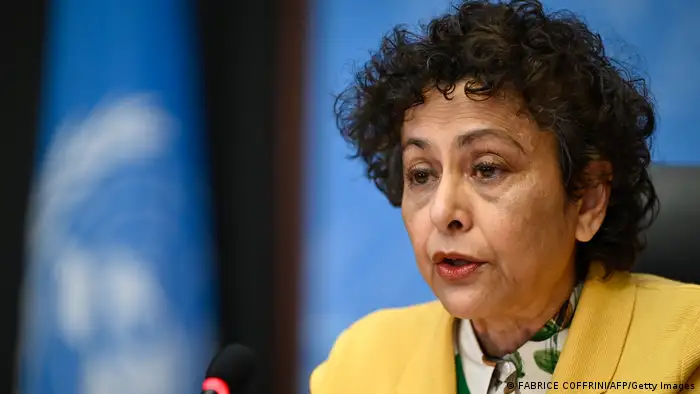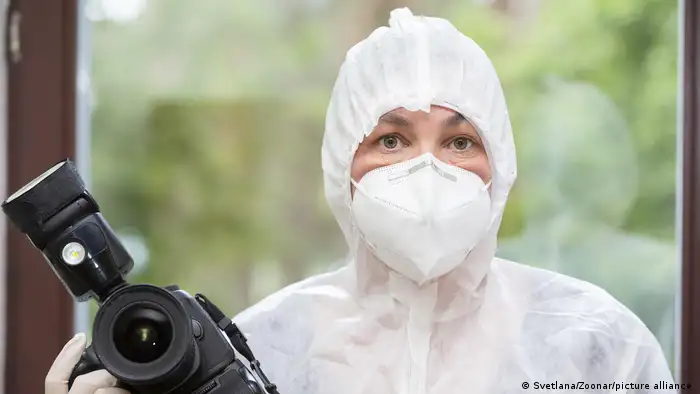COVID-19 and the global media sector
2 Professional journalism and media viability
During the pandemic, professional journalists were under pressure to provide vital information to the public under difficult circumstances.
The COVID-19 crisis has caused tough constraints for reporting. Media houses suffered from the economic downturn and a severe slump in advertising markets.
Despite growing audiences and increased demand for quality journalism, the pandemic has had a considerable negative impact on media professionals and media organizations worldwide. Journalists' work was impacted by restriction of movement, limited access to sources and official information, and the repercussions of the increasingly precarious economic situation of media outlets. As a result, journalists were challenged not only financially but also in their psychological well-being. They were also exposed to health risks by having to continue working under risky conditions for fear of losing their livelihoods.
A global survey of journalists conducted between May and June 2020 by the International Center for Journalists (ICFJ) in 125 countries found that 70 percent of the respondents identified psychological impacts as the most challenging aspect of working under the strain of the pandemic. 30 percent said they were not provided with the recommended protective equipment when in the field. 20 percent felt that online hate attacks against them became markedly worse during the pandemic.
Women journalists often bear the greatest burden: In a survey conducted in June 2020 by the International Federation of Journalists (IFJ) among more than 500 women journalists, more than half of the respondents—55 percent—said gender inequality in their workplaces had increased, with serious consequences particularly in terms of balancing their work and private lives. Nearly 60 percent of the respondents said increased stress levels had affected their health.
Difficulties also arise from the complexity of the health and related issues journalists have had to report on during the pandemic. Journalists' abilities to contextualize and interpret scientific data and facts, and break them down to make them comprehensible while not oversimplifying the issues at hand, were challenged.

"When freedom of expression is protected, civil society, journalists, experts and policy makers are able to present alternative viewpoints and challenge falsehoods and conspiracy theories." -- Irene Khan, UN Special Rapporteur on the promotion and protection of freedom of opinion and expression
In the wake of the COVID-19 crisis, companies around the world have slashed their advertising budgets. Print newspapers and magazines have been particularly affected, with loss of sales exacerbating their loss of advertising revenue. International business consultancy PricewaterhouseCoopers estimates that circulation revenues for the sector fell by 14.3 percent in 2020 alone.
At the same time, global budgets for online marketing have remained the same as before the virus outbreak or even grown. Marketing experts estimate that globally, spending on online ad markets in 2020 outstripped the outlay for traditional media advertising. The pandemic has thus intensified the ongoing disruption that digitization has spelled for traditional media business models.
During the early stages of the pandemic, media houses across the globe suffered from a decline in revenue. As a consequence, many outlets had to lay off staff. 89 percent of media professionals who took part in the aforementioned ICFJ survey said their news organization had implemented at least one pandemic-related austerity measure, whether dismissals, salary cuts or outlet closures.
Commercial news media, in particular ad-financed businesses, as well as newspapers and local radio stations found the financial impact of the health crisis crippling. Some of the smaller online news media and non-profit outlets, meanwhile, have so far managed to navigate through the crisis with relative stability, in part because they are less dependent on advertising as a source of income.
Recommendations
To strengthen the economic viability of independent media, actors in international cooperation contexts, such as governments, donors, and civil society organizations, should:
- Promote business capabilities and audience engagement, particularly of small and medium-sized independent public interest media companies.
- Support the establishment of well-functioning, non-discriminatory media and advertising markets as well as a distribution infrastructure, and work towards greater transparency of media ownership.
- Support the creation and implementation of regulatory frameworks that effect algorithmic transparency of social media platforms, and a fair balance between content producers and social media platforms in the distribution of advertising revenues.
- Strengthen journalistic professionalism—including with regard to science journalism—by improving education and training structures and professional networks.
This page is part of the article "COVID-19 and the global media sector. Developments and ways forward" on #mediadev:
1 Key challenges to freedom of expression
2 Professional journalism and media viability
3 Media and information literacy and digital inclusion
You can also download the discussion paper as pdf.
DW recommends
Downloads
- Date 17.11.2021
- Author Alexander Matschke, Johanna Mack, Dennis Reineck, Roja Zaitoonie
- Feedback: Send us your feedback.
- Print Print this page
- Permalink https://p.dw.com/p/42mFe
- Date 17.11.2021
- Author Alexander Matschke, Johanna Mack, Dennis Reineck, Roja Zaitoonie
- Send us your feedback.
- Print Print this page
- Permalink https://p.dw.com/p/42mFe

